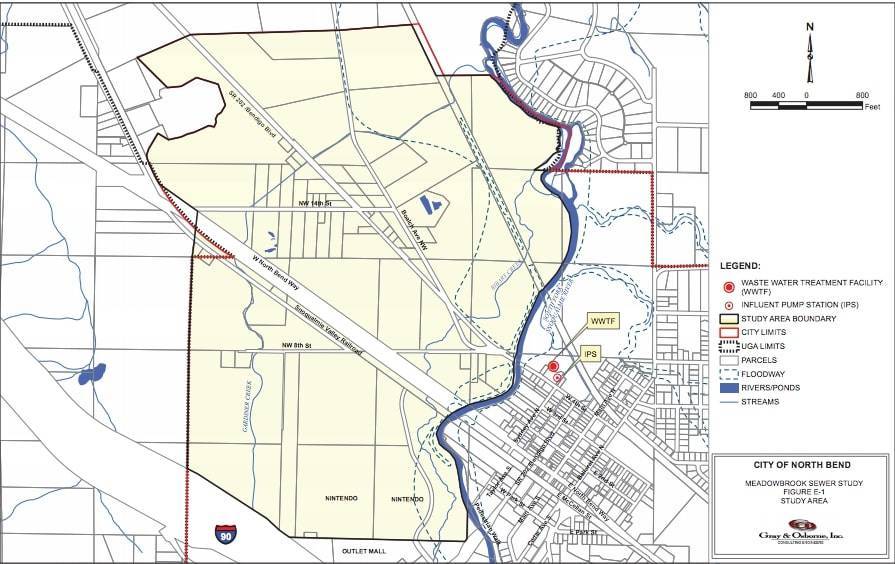Residents and city officials came together at a virtual town hall July 27 to discuss the construction of the Meadowbrook Utility Local Improvement District.
The proposed construction would extend the public sewer system to the western portion of city limits into the Meadowbrook neighborhood. Last year, a majority of neighborhood residents signed a petition requesting the city extend sewer service to homes and businesses in the neighborhood. The area currently has a septic tank in place.
“I happen to believe public sewers are better than private septic tanks in most situations,” said Mark Rigos, the city’s public works director.
Rigos said switching to public sewer has several benefits compared to a septic tank, including that the system will be managed by the city, requiring less involvement from residents. It also allows residents to more easily develop on their property.
A sewer system is less likely to overflow than a septic system, Rigos said, which means it is less likely to pollute groundwater aquifers that deliver cities drinking water. The city of North Bend receives some of its water from a well in the center of the city, near the Meadowbrook neighborhood, Rigos said.
Still, the project faces obstacles. Doug van Gelder, a development project manager for the city, said the construction of a sewer system would be difficult given the landscape of the area.
“We have to cross a river, have to deal with wetlands, with sensitive areas, we have groundwater issues in the city. There are a number of things that need to be taken into consideration,” he said.
Several residents spoke at the town hall, citing concerns ranging from not wanting to pay for the construction of the new system to having no desire to develop on their property.
“I’ve had no issues with [our septic tank] and the idea of incurring costs to be part of the city sewer and water is definitely not something we are interested in, nor do we have money to make that happen,” resident Thea Mundy said. “There are residents who are longtime valley residents that have no desire to do this.”
Rigos said residents would not have to begin paying for the project until after it is constructed, installed and approved. He said repayments for the project would be over a 20-year period, with an interest rate between 2% and 2.5%. Payments would not begin for three or four years until construction is completed.
According to a 2016 study by the state Department of Ecology, North Bend residents paid the highest monthly rate for single-family sewer service in the state at $156.93 per month.
Wende Miller, one of the residents who began circulating the petition to construct the project, said she has lived in North Bend for 17 years, and despite paying taxes on her property, she has been unable to develop it.
“We want to do something with our property, but because of code issues with the city, we are unable to,” she said. “I encourage everyone to look not only at the cost, but to look at the value it brings to your property, [and] to the city.”
According to a March 2021 study of the area, produced by private appraisal firm Sova Consulting, the project is estimated to cost nearly $7.5 million. The construction of the utility district is expected to increase the total neighborhood property value by $11.6 million.
Now that the city knows the value of the property and has an estimated cost of the project, Rigos is asking residents of the neighborhood to circulate another petition to confirm that the majority of residents are still in favor of the project. If a majority of residents remain in favor of the project, a finalized petition will be passed onto the city council for confirmation. If the council approves the project, the city will spend approximately a year in the design phase, with construction beginning after that.


